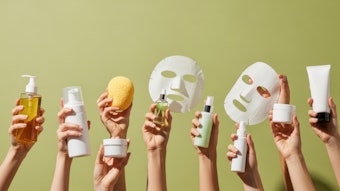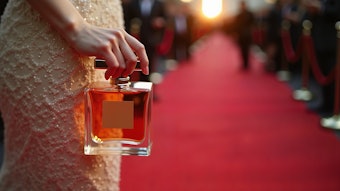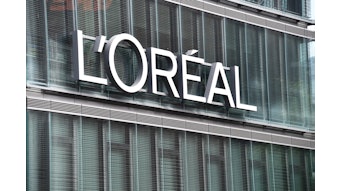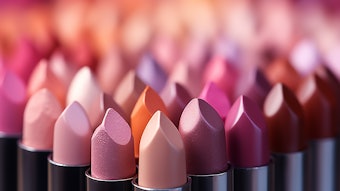The boom in the Brazilian beauty market hasn’t been confined to brick-and-mortar retail doors or to direct sellers. According to research conducted by MercadoLivre (eBay’s Latin American partner), the e-commerce of beauty products in Brazil increased 47% in the first half of 2011, logging more than half a million items sold.
“More and more customers are migrating from traditional channels such as drugstores and hair salons to the online environment, which can be more convenient and cost-effective,” said Helisson Lemos, director, MercadoLivre Brasil. According to Lemos, the cosmetic category increased 50% more than the average for all other products—which also reflected the increasing number of women purchasing through e-commerce. The most popular products are nail polish (up 126% in the past year), makeup (+101%) and hair care products (+77%).
Estée Lauder’s Clinique wasted no time, and took advantage of the momentum to launch its e-commerce platform in Brazil. The company, which claims to lead online sales of cosmetics in the U.S., chose Brazil to debut its electronic operations in Latin America.
All products from Clinique’s portfolio are available through the website, with free delivery to the whole of Brazil. “We intend to reach customers who are far from the 63 points of sale located throughout the country,” said Clinique’s brand director Fernanda Calvet. “We also want to offer a unique online experience, with beauty tips, trends and exclusive applications.”
According to data from Nielsen, Brazilians who regularly access the Internet rank among the most frequent users of social media, with 86% of Internet users regularly accessing social networks and other media websites. In 2010, 23 million Brazilians purchased from websites, and the overall digital market is expected to grow 30% by the end of 2011.
Merger Creates Brazil’s Largest Drugstore Chain
Drugstore chains Drogasil and Droga Raia have reached an agreement to combine their operations into a single company. With the merger, Raia Drogasil has become the largest drugstore chain and the seventh largest retailer in Brazil.
The agreement exceeds the giant formed by the acquisition of Drogão (fourth-leading drugstore chain in the state of São Paulo) by Drogaria São Paulo in June 2010. Together, Drogasil and Droga Raia account for revenues of R$4.1 billion through 700 points of sale. According to Euromonitor International, the new company should hold a 9.5% market share of the Brazilian drugstore channel, which totaled about R$43 billion (on average in 2010, R$76 billion) in 2010. Experts say the merger will allow the company to leverage its purchasing power on its suppliers.
P&G; Unilever Aerosol Deo Production Moves to Argentina
The world’s largest consumer market for deodorants, Brazil is likely to move much of its aerosol production to other Latin American countries by 2013. Due to high manufacturing costs, companies such as P&G and Unilever have been producing aerosols in Argentina and importing large volumes to meet the Brazilian demand.
Over the past 10 years, the import of deodorants increased 500% in value, and approximately 82% of all aerosol deodorants sold in Brazil are currently manufactured overseas. Data from Nielsen shows aerosols account for 57% of the Brazilian deodorant market, which recorded sales of $2.28 million in 2010 (on average, $4 million in 2010).
The production migration is mainly due to raised taxes and high prices of components such as propellants. The Brazilian Association of Aerosols and Sanitizing Products (ABAS) estimates Brazil has lost 9,000 jobs in recent years due to the closure of aerosol factories.
Brazil Joins the ISO Technical Committee on Cosmetics Brazil is the 34th country to integrate ISO/TC 127, the technical committee responsible for developing global cosmetic standards. Since 2004, Brazil has been attending the organization’s meetings, and now it will start contributing actively to the discussion on cosmetic regulation issues.
“With the growth of the Brazilian beauty industry and our constant investments in innovation, quality and safety, we can celebrate this important achievement that places Brazil in the decision-making scenario for the standardization of products and processes,” said João Carlos Basilio, president, ABIHPEC.
According to Basilio, the next challenge is to establish Brazil’s presence in other international groups such as the International Cooperation on Cosmetic Regulation (ICCR), which includes regulatory authorities from the U.S., Japan, the European Union and Canada.
Boticário Group to Invest in New Plant
The Boticário Group will invest R$355 million to build a new plant and distribution center in the state of Bahia, northeastern Brazil. The company’s president, Arthur Grynbaum, has also unveiled plans to expand production facilities located in Pinhais (in state of Paraná) and the distribution center in Registro (state of São Paulo), and has not ruled out further acquisitions.
The new plant will be O Boticário’s largest one, with production capacity of 330 million items per year. The construction is projected to begin in early 2012, and operations are to start 18 months later. According to Grynbaum, the investments aim to improve logistic operations by reducing transport costs and delivery times.
Grynbaum is optimistic about the performance of the Boticario Group in 2011, and aims to increase revenues from R$1.6 billion (in 2010) to R$2 billion—with some of that growth due to the February 2011 launch of the company’s Eudora brand. For its retail sales (the company currently operates 800 O Boticário stores in the northeast region), he forecasts sales of an additional 20% over 2010’s R$4.6 billion.
Carlucci Named New President of WFDSA
Natura CEO Alessandro Carlucci was appointed president of the World Federation of Direct Selling Associations, a three-year term. The WFDSA is a non-governmental, voluntary organization globally representing the direct selling industry through 60 national direct selling associations worldwide and one regional federation.
“My main goal is to promote the direct sales activity throughout the world as an important alternative for individual entrepreneurs to contribute to social transformation,” said Carlucci. In 2010, the direct selling sector generated sales of $132 billion worldwide and involved 88 million salespeople.
In Brazil, direct sales accounted for R$26 billion in 2010, up 8.9% over 2009. According to the Brazilian Association of Direct Selling Companies (ABEVD), the segment is responsible for generating income for more than two million people throughout the country.
Fernanda Bonifacio is a Brazilian journalist who focuses on the beauty industry, and has been published in the U.S. and Europe. During 2002–2008, she represented ABIHPEC and its member companies globally.










